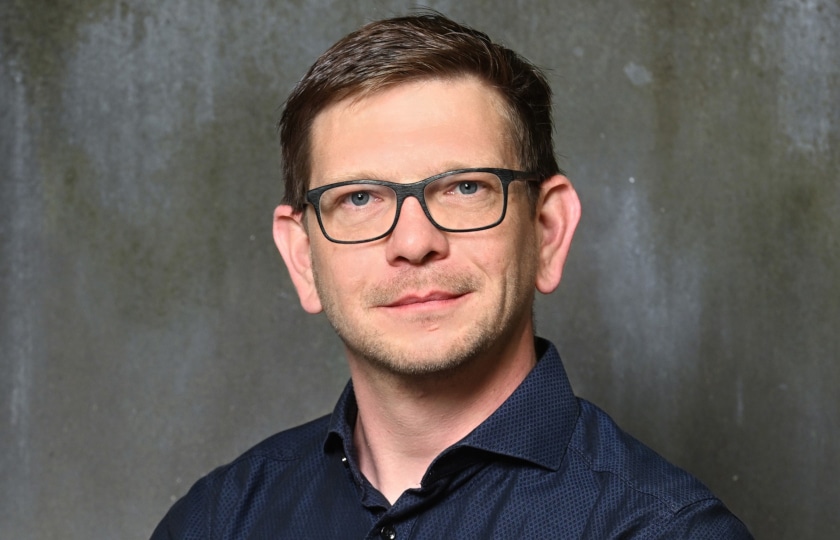How do people in Germany keep themselves informed in the digital age – and what does actually stick with them? In a long-term project, the HBI, together with the dpa and other partners from the media, public institutions and civil society, is researching the news literacy of the population under the age of 30.
Digital media environments have significantly changed the way society informs itself. On the one hand, they offer more and more opportunities to stimulate social discourse. On the other hand, however, an impoverishment of social communication can be observed, such as tendencies to avoid news content, the spread of fake news or a reluctance to pay for journalistic services. This situation is problematic because a functioning democracy depends on well-informed citizens and on the free formation of individual opinions.
Thus, the German Press Agency (dpa) and the Hamburg Ministry of Culture and Media have initiated the project “#UseTheNews”. Together with partners from the media, science, public institutions and civil society, the project aims to research and promote the news literacy of the population under 30.
The objectives are as follows,
- to gain sound knowledge of the news usage, levels of information and news literacy of the population
- establish a broad dialogue on ways to promote news literacy and news interest, involving policy makers, media companies, educational institutions and civil society; and
- develop a wide range of measures to promote news literacy.
Scientific Methodolgy
The Leibniz Institute for Media Research conducts a study with qualitative and quantitative components in order to provide sound knowledge. The focus lies on the interaction between news interest, news usage, information and opinion formation.
The central questions of the study are
- Does it make a difference where and how people inform themselves?
- What is the situation regarding news literacy in the digital media environment?
Based on the findings of the study “Use the News – News Usage and News Literacy in the Digital Age”, the participants want to develop and test new news formats in a specially founded media laboratory.
Preliminary Findings
The following findings were presented at the Hamburger Mediendialog [Hamburg Media Dialogue] on Wednesday, 28 April 2021 and published afterwards:
- Main findings from the study #UseTheNews published on 28 April 2021 – Executive Summary (pdf) (in German)
- Uwe Hasebrink, Sascha Hölig, Leonie Wunderlich (2021): #UseTheNews. Studie zur Nachrichtenkompetenz Jugendlicher und junger Erwachsener in der digitalen Medienwelt[Study on the News Literacy of Adolescents and Young Adults in the Digital Media World]. April 2021. Hamburg (Working Papers of the Hans-Bredow-Institut | Project Results No. 55) (pdf)
Statements of the Project Partners
The aim of the project is to counteract the declining relevance of journalistic news, especially among younger people. For this reason, the project should also give new impulses for teaching news and information literacy in schools. This was announced by the dpa and the Senat of Hamburg on 27 May 2020 on the occasion of the Hamburg Media Dialogue.
“Discourse among responsible citizens is only possible on the basis of facts and trustworthy information. With this study, we hope to gain important insights into how we can maintain the high value of news as a cultural asset in the digital age,” emphasizes Hamburg’s Senator for Culture and Media, Dr. Carsten Brosda.
“An independent supply of news and information is indispensable in a democratic society. Especially in the past weeks and months of the Corona pandemic, the news media have proven how important their role in the presentation and classification of complex issues is,” says Peter Kropsch, Chief Executive Officer of the dpa Executive Board. This makes it all the more important for the media to recognise changes in news usage and to react with the right information offerings.
The director general of SWR, Dr. Kai Gniffke, is particularly pleased about the cross-genre collaboration. “If we want to continue to provide our young audience with information in the future, we will have to change the way news is presented in journalism. This concerns presentation, language, forms of presentation and output channels. In the lab, we can experiment with new concepts in a mixed team of publishers and broadcasters.”
In a next step, the participants want to develop new digital concepts for the early communication of basic news literacy in schools. According to BDZV general manager Dietmar Wolff, “the cooperation between newspaper publishers and schools on site has proven to be successful. In view of the high dynamics of digitisation, we need new approaches to make young people aware of the value of independent news journalism, from local to world affairs.” The joint project could contribute to this.
In addition to the Senate of the Free and Hanseatic City of Hamburg, partners in the project include Südwestrundfunk (SWR), the German Newspaper Publishers Association (BDZV), the State Media Authorities of Hamburg-Schleswig-Holstein and Baden-Württemberg, the ZEIT Foundation, SPIEGEL, the regional media groups VRM (Mainz) and NOZ (Osnabrück) as well as the Hamburger Abendblatt, which belongs to the Funke media group.













